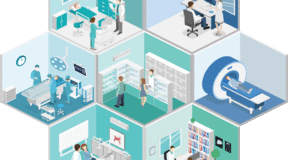Involvement in the legal system is often the last thing any medical professional wants to think about when it comes to their job. The idea of getting sucked into a legal action on behalf of a patient is often the proverbial stick used on new nurses and doctors to make sure they’re following workplace regulations correctly. Yet personal injury law remains inextricably linked to the healthcare system in Ontario, often for reasons that have nothing to do with suing hospitals, doctors or nurses for medical malpractice.
Chris Richard, of Graves and Richard Personal Injury Lawyers, with over 10 years’ experience, and Jim Vigmond, of Oatley Vigmond Personal Injury Law Firm, with over 30 years’ experience, sat down with us to provide perspective on what medical professionals need to know about the legal component of a patient’s experience going through the Ontario healthcare system.
Medical malpractice isn’t the only reason your patient may need legal counsel
Patients, especially those with physical trauma where someone else is involved (i.e. car accidents), will often require legal help just to navigate the complex requirements of their insurance company to receive the full range of benefits to which they are entitled. Personal injury law can encompass working on a client’s behalf with insurance companies, workplaces, or other parties who had a duty of care for the patient but failed to fulfill that duty.
The focus of most medically related legal work is returning a patient to their pre-accident status
Just as medical professionals are working to treat and heal a patient of a traumatic injury, ideally returning a patient to their pre-hospital physical condition, the job of medical legal representation is to return their client to their pre-hospital material condition, whether that is in terms of resources, mobility or other functions required to return to their lives in an undisturbed form. In order for a patient to be made whole in their lives after a traumatic injury, they often will need to avail themselves of both the medical and the legal systems to address all of their life needs.
Most medical legal work will never even go to trial
In the vast majority of cases, whether legal counsel is dealing with the insurance companies, their workplace, or the party that caused an accident, most actions are settled out of court; negotiated by both sides’ lawyers to reach a settlement that both sides find acceptable. These settlements are often predicated upon the lost wages a patient will need to live on while recovering from injuries, or the home care necessary to recover from the injuries themselves.
What happens during medical treatment can affect a patient’s legal prospects greatly
Since the vast majority of patients need to be treated medically before exploring what resources they will require during their recovery period, what happens in the hospital will obviously impact how patients will return to their lives. But it’s not only how successful a surgery or treatment goes that determines a patient’s quality of life once discharged. A patient’s condition and progress via patient notes are often one of the main information sources that legal determinations are made upon.
Medical professionals are held in high esteem by the general public – that means juries, too
Both lawyers cited nurses, doctors and paramedics as being highly respected by almost all the juries they’ve encountered, making their testimony and written medical records of great weight in most cases, whether they go to trial or not. You can help your patients with simple note taking guidelines: contextualize your daily comments (just how bad is it?), give examples or meaning to the concepts you write down, and use outside sources to corroborate what a patient tells you if possible.







